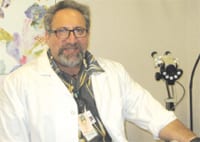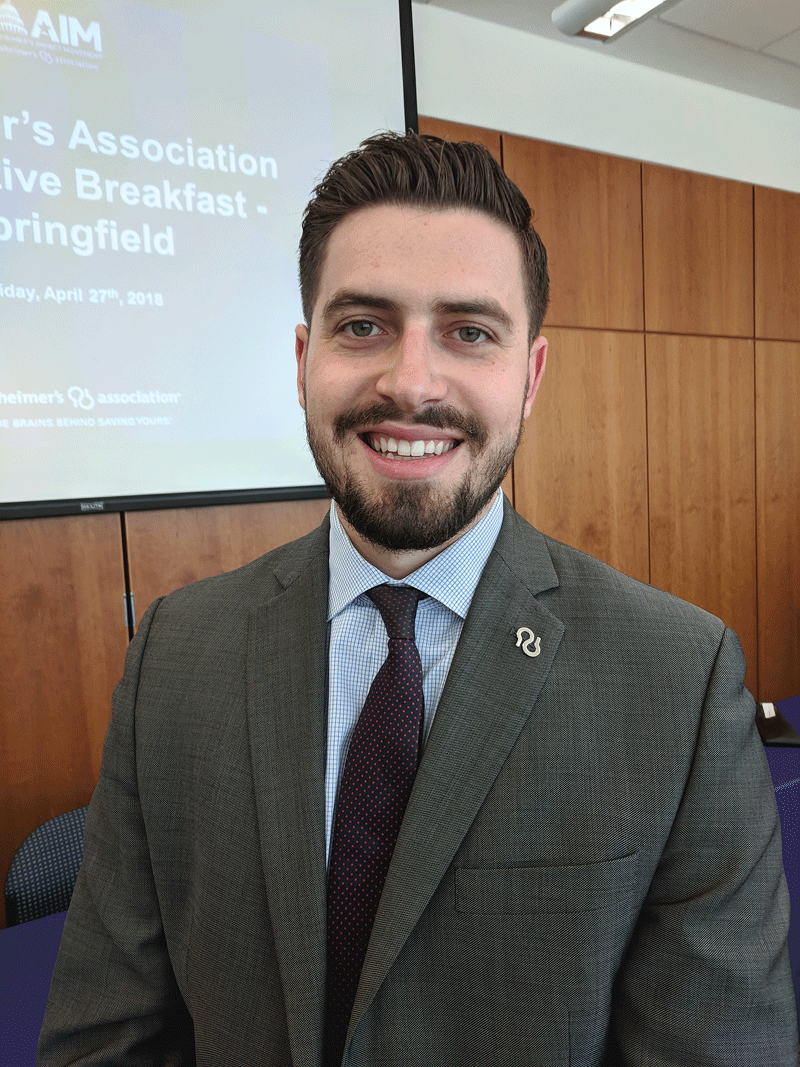Through the Years Women’s Health Associates Helps Patients Navigate Life Changes
When Dr. Robert Wool opened Women’s Health Associates of Western Massachusetts in Westfield in 1988, it was one of the area’s first hospital-run women’s practices, affiliated with Noble Hospital.
More than two decades later, now an independent practice, Wool and a small staff operate two sites (a Springfield office opened at Mercy Medical Center about 10 years ago). Medical knowledge and technology may have changed during that time, but Wool’s passion for his work certainly has not.
“If I didn’t love this job, I wouldn’t do it,” he said, citing in particular an often-lengthy workday. He makes rounds in the hospital at 6:30 a.m., then typically sees patients in his office until around 5 p.m. each day. “Then I take calls and do deliveries, whenever they occur. Sometimes it’s 2 or 4 in the morning.”
But day or night, he knows he’s making a difference in women’s lives.
“We see a broad range of patients, from adolescents to post-menopausal women, and we provide general ob/gyn services across the board to them,” he said. “What’s nice, being in practice for 23 years now, is that we’re starting to see second- and third-generation patients come through. The other day, I had in one room four generations of women — three are patients, and one was just born.”
That hints at one of Wool’s favorite aspects of his career: the relationships built up with women over the decades, helping them make health choices and guiding them through some major touchstones of life, from the anxious joy of pregnancy and childbirth to the anxious struggle of a cancer diagnosis.
“That’s the nature of our business — it’s very personal,” he told HCN. “What’s nice is, I’ve got patients I’ve known for 20-odd years. I get to know their families. I’ve watched them start families, and their families have families. That’s been very gratifying to me.”
Scanning the Horizon
Wool, who works with a nurse practitioner and a midwife in Westfield, and two midwives in the smaller Springfield office, said he wanted a primary-care specialty when he became a doctor, but also enjoys the excitement of the emergency room and the delivery room. “No two days of mine are ever the same.”
But he also realizes the importance of the lower-key appointments and screenings that make up much of his day-to-day work.
“A lot of women will see their ob/gyn as their regular doctor, so we screen for a lot of things,” he said, adding that his team just made a big “kick save,” as he called it, when they noticed sugar in a woman’s urine during a routine screening. After ordering blood tests, they realized the woman was in “an overt diabetic crisis,” Wool said. “She didn’t know she was diabetic, and we called her and got her into the hospital that night.”
Meanwhile, he stresses the importance of screening for cervical cancer, particularly in younger, sexually active women. “One of the great home runs in medicine is the pap smear,” he said. “It’s one of the few places where screening has decreased cancer in women. They get screened with a pap smear, and we can find cervical disease in the early stages and keep cancer from happening.”
In older women, osteoporosis can be a serious threat, which is why Wool stresses the importance of early bone-density screening.
“A good percentage of women who break their hip after menopause don’t make it through the year,” he said. “For me to have the ability to steer women into a good bone-health program has been great. We’ve brought in a state-of-the-art bone-density scanner in Westfield, and we’ve taken the time to get the staff trained in doing density scans and interpreting them.”
It quickly becomes clear that Wool enjoys the lifelong continuum of care his practice provides.
“We’ve seen women from their teenage years through their 80s and 90s,” he said. “They develop a trust with us. Women talk to me about stuff they don’t talk to their husbands about. And that can only come from years of trust. Developing long-term relationships is what this practice is all about, and I think the longer you know somebody and the better you know somebody, the more beneficially you can affect their health.”
As for when young women should first see an ob/gyn, Wool said it varies for each patient.
“When a mother asks when she should bring her daughters, I tell them, ‘bring her if she’s having problems, bring her if you know she’s sexually active, or bring her when she’s 18, whichever comes first,” he said.
“I’m a big believer in birth control for teenagers, even if they’re not sexually active,” he added, explaining that maintaining a regular, predictable cycle provides one less stress during an often-anxious time of life. “No one becomes sexually active because they’re on the pill, and if they’re going to be sexually active, it’s far better with birth control than without it.”
Time Passages
Twenty-three years is a long time in the fast-moving world of medicine, and an ob/gyn practice is no exception.
“As we’ve learned more, practices have changed,” Wool said. “Certainly as new technologies and modalities come into the arena, we do things differently.”
The hysterectomy rate is one powerful example, he said. “When I first started, everyone was getting a hysterectomy; the rate was outrageously high,” he said. “There was a backlash, and now it’s very low. I think people started to say, ‘we want to keep our organs.’ There are a lot of reasons not to do a hysterectomy on somebody.”
But, like many advances in health care, the change resulted from a convergence of that desire and technology that makes treating uterine conditions such safer and less invasive. “Now hysterectomy is a last resort. It’s more things like endometrial ablations. And the new Mirena IUDs [which control bleeding] have been a godsend; they provide not only birth control, but beautiful cycle control, with far less hysterectomies.”
“I think the awareness was there, and then the technology caught up with it,” he added regarding the push for fewer surgeries. “When the technology came out, it allowed us to treat women well without doing hysterectomies.”
On the negative side of practice changes, insurance hassles — a topic on which Wool admits he has a strong opinion — have only grown more cumbersome over the years.
“Insurance companies have made practicing medicine much more difficult. They really are an unnecessary middleman that absorbs way too much of the medicine dollar and dictates way too much of the medical care, and the only thing that matters to them is the bottom line,” he said. “I spend much more time dealing with the bureaucracy of insurance companies and less time dealing with patients than I used to.
“The good news is that I’m not the only one thinking that,” he continued. “I think there will be a resolution to these problems; I just don’t know what that’s going to be or when it’s going to happen. But I don’t think patients will stand much longer for being able to access care, not being able to get the medications they need because insurance companies say they can’t have it, not being able to get tested without prior approval.”
Life’s Work
But despite these hassles, and some long nights and tired mornings, Wool knows he’s in the right field, because he’s still passionate about guiding women through the many stages of their life and health.
“I’ve long believed that, if you don’t love your job, find another one,” he told HCN. “And I’m not looking for another job. I love what I do. I don’t love every day of it, but I couldn’t think of doing anything else.”


